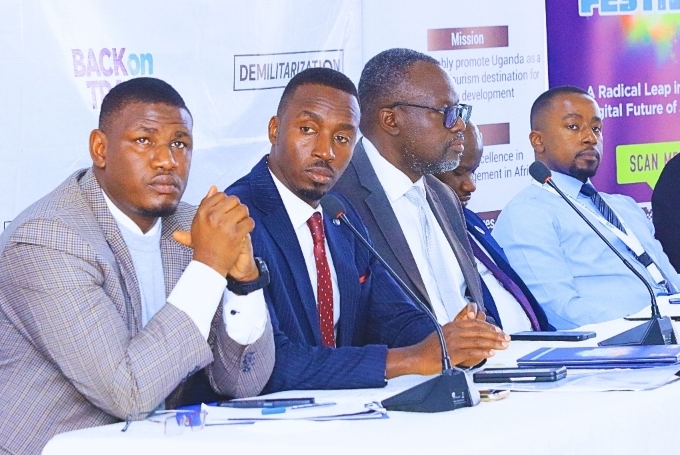The Uganda Law Society (ULS) has unveiled a new drive to modernize the legal profession through digital training programmes, cleared its international membership fees, and officially threw weight behind Uganda’s bid to host the 2029 Commonwealth Law Conference.
The initiatives were announced during the 33rd Radical New Bar (RNB Live) session held at the ULS House in Kampala, where the Society, in collaboration with Uganda Technology and Management University (UTAMU), launched specialised postgraduate courses in Digital Literacy for Lawyers and Artificial Intelligence for Lawyers.
Prof. Venansius Baryamureeba, Chairperson of the UTAMU Council, said the new courses would help legal practitioners adopt digital solutions such as e-filing, virtual hearings, and electronic case management systems.
“Justice is often slowed down by manual processes. These courses will empower lawyers to store and manage their records securely in the cloud, reducing the heavy reliance on physical files. Digital literacy is no longer optional—it is the backbone of a modern and efficient Bar,” Prof. Baryamureeba noted.
The ceremony also honoured several figures for championing technology in justice delivery.
Justice Frederick Martin Stephen Egonda-Ntende, of the Court of Appeal, was applauded for his decades of service and reforms in the judiciary.
Chief Magistrate Winnie Naigaga Kyobiika was recognised for her work at the Uganda Legal Information Institute (ULII) and her advocacy for digital transformation in courts, including the use of Zoom hearings.
Prof. Paul Mukiibi, Head of Law Reporting at the Law Development Centre (LDC), received special mention for innovations such as “Legal Alerts,” professional WhatsApp networks linking over 3,000 lawyers, and audio alerts to support visually impaired practitioners. He also revealed efforts to translate legal resources into Luganda, Lusoga, Runyakitara, and other local languages.
Counsel Patrick Gikiina of Legal Frameworks Uganda and Counsel Terry Kahuma, founder of Simply Legal, were also among the awardees.
In his report, ULS Treasurer Arthur Isiko announced that the Society had settled UGX 29 million in membership fees owed to regional and international professional bodies, including the East Africa Law Society, Pan-African Lawyers Union, Commonwealth Lawyers Association, and the International Bar Association.
“Uganda should not only sit at the table of global legal networks we must lead and shape them. Clearing our dues affirms our commitment to meaningful participation,” Isiko said.
The day also served as the pre-launch of Uganda’s campaign to host the 26th Commonwealth Law Conference in 2029.
ULS Vice President Anthony Asiimwe thanked the Uganda Tourism Board (UTB) for spearheading the bid, stressing that the legal profession would rally behind the effort. “This is an opportunity to showcase our profession and our country while boosting tourism and international visibility,” he said.
UTB representatives Paul Mugabo and Henry Bukenya assured delegates that Uganda has the infrastructure and organizational capacity to deliver a successful event.
In a lighter moment, winners of the recent #TechFest2025 competition were recognized. Counsel Emmanuel Ilukor was handed a fully-sponsored travel package to Cape Town courtesy of D&E Tours and Travel Agency.
Agency representative Claire Nasasira congratulated Ilukor and encouraged more lawyers to engage in upcoming international exchanges, including the International Bar Association Conference in Toronto (November 2025), the East Africa Law Society Conference in Addis Ababa (November 2025), and the Commonwealth Lawyers Conference set for Australia in 2027.
The day’s discussions highlighted a single theme: Uganda’s legal profession must embrace technology to remain relevant and impactful. From e-filing to multilingual legal content, ULS leaders and partners pledged to make justice more accessible, inclusive, and globally competitive.


